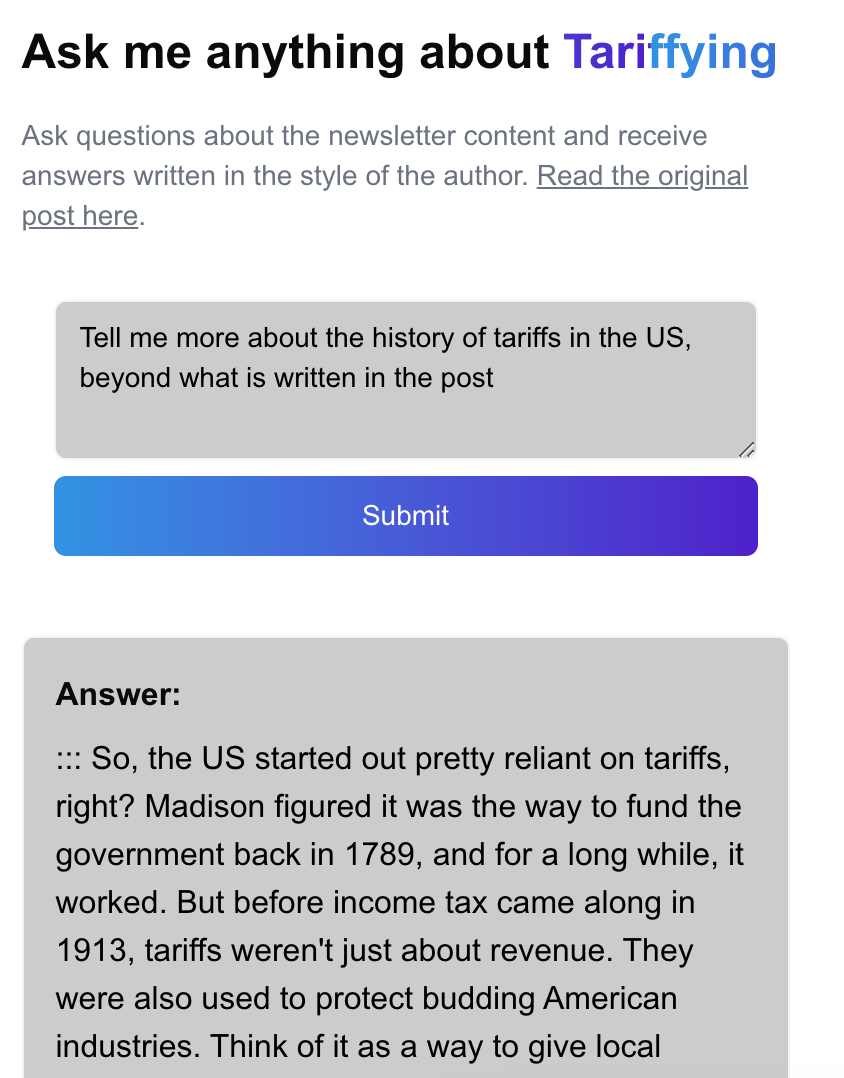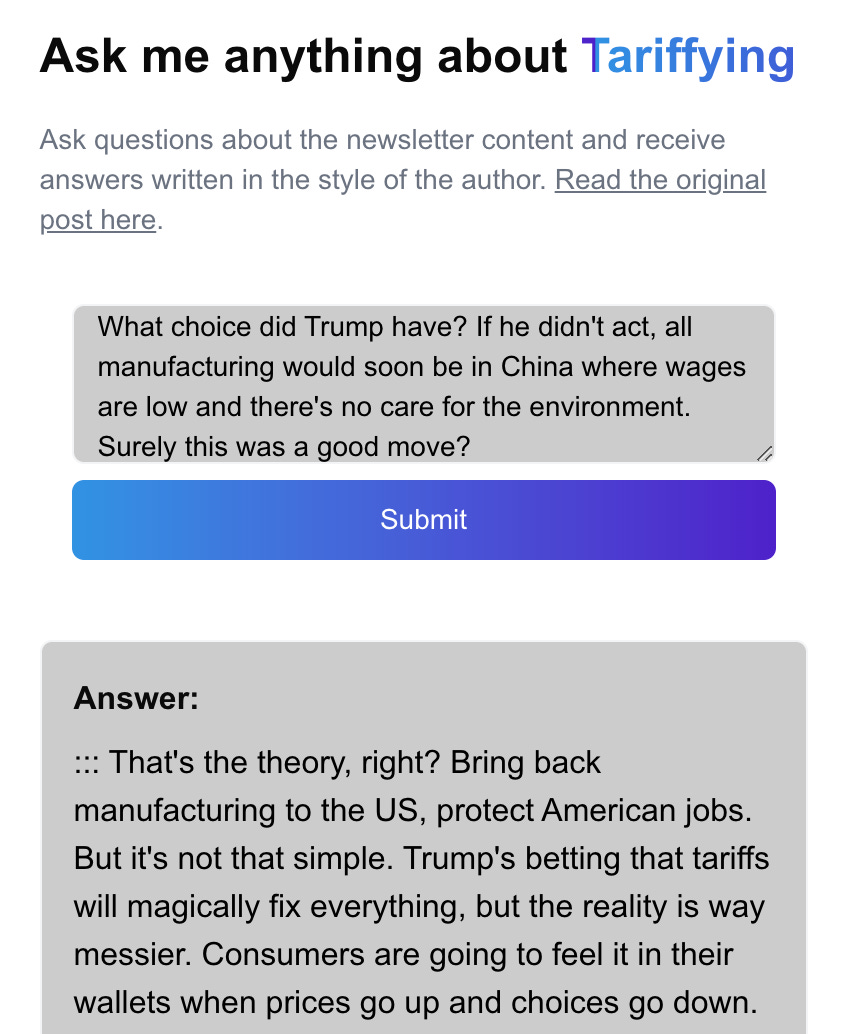AskMM
I made an AI - try it now
Everyone expected technology to disrupt jobs in a particular order. Low-skilled jobs would be first. Then skilled manual labour. Then desk-based work. And finally, creative jobs. Software engineers and coders would never be disrupted.
But AI has flipped that assumption on its head. Companies are ditching designers and photographers in favour of AI-generated images. Copywriters and speechwriters are being thrown out of offices. There are, already, a bunch of AIs especially built to write your wedding speech or vows. Meanwhile, jobs in Amazon warehouses show no signs of slowing and skilled manual work has never been in higher demand.
And now, a job that for the last three decades has been assumed safe from automation, is facing the chop thanks to AI: coders.
In a matter of years, if not sooner, natural language will replace just about every coding language (Python, Ruby, C++). Anyone will be able to create anything by writing instructions in English only.
That’s already starting today.
And to prove it - I made something.
Introducing AskMM: a new add-on to the Monday Memo that lets you quiz and dive deeper into what I’ve written.
It’s a chatbot that’s been ‘trained’ on the contents of the latest newsletter, as well as the drafts and research that went into it. You can ask questions about what you read, challenge the ideas or get more detail. It’ll respond using my writing style, sharing my opinions.
Try it now and ask about last week’s issue - Tariffying - ask.mondaymemo.co.uk
How it works
AskMM will give you more context on the most recent thing I’ve written:
You can ask about specific sections, to have it explained in a different way or using different language:
You can ask for opinions beyond what is written, or based on new information that emerged since it was written. The AI will make an assumption about what I’d write about that:
You can challenge my takes and the AI will take you on:
You can also ask quirky stuff. Ask it how I generate the images in my newsletters, what I’m writing about next week, or even how I get it out pre-9am every Monday. I’d love to see what you come up with.
How I made it
I created AskMM in a few hours using AI, and without writing a single line of code. I used Google’s new Firebase Studio to build the barebones of the tool. Firebase Studio requires just a plain English prompt and then builds a V1 of the app. You continue to prompt it to make adjustments.
I used Google Gemini as the response engine, which required a bit of fiddliness hooking up an API (Application Programming Interface - a set of codes that allow two tools to connect), but nothing too strenuous. I prompted Gemini using last week’s newsletter, plus the first draft and some research notes. If I was to spend longer, I would’ve used all of my historical newsletters plus other stuff I've written, so it really matched my writing style and opinions more closely.
I’m pretty bad at design, so I used OpenAI’s DALL-E image generation to design the UI (User Interface). It came up with something pretty simple but a good starter:
I added some colours, features and animations, again with simple natural language prompts to Firebase Studio.
For example, here’s the prompt I used to add that disclaimer pop-up before you can ask your first question:
There’s a few bugs that I can’t figure out, like why answers sometimes end in ‘undefined’. I made a last minute edit on Sunday night that caused the first word to always skip out a letter, which I’ve temporarily fixed by prompting the AI to start every answer with “:::”. These bugs wouldn’t be hard to fix properly with more time: not least using ChatGPT’s Canvas tool, that lets you work on and debug a block of code using plain language.
I suspect it’s also pretty easy to jailbreak (bypassing its guardrails): please do have a go, and share what you come up with. A fiver to anyone who can get it to send a weed brownie recipe.
Creating AskMM is just to illustrate a bigger point: this is an unbelievable step forward and a game-changer for the future of computing. When web 2.0 came along, anyone could contribute to the open web without any special experience or skills. Now, anyone can build the web. This has the potential to upend the way we live in small ways and big. With a smart kettle, smart doorbell, AI and a tool like Firebase: you could build an app that boils your kettle as soon as you walk through the door.
(The real future is that these apps build themselves. Your smart kettle just teaches itself to turn on when you walk through the door. AI will eventually enable the tech we use today to become exponentially more personalised and useful.)
It’ll also have monumental impacts for the economy: computing jobs are some of the best paid in the economy today. What will replace those jobs if AI replaces those roles?
I have no idea, but no one is safe from the shifts that AI will create. Society has to adapt fast keep up with this technology - something that governments have historically been very bad at.







